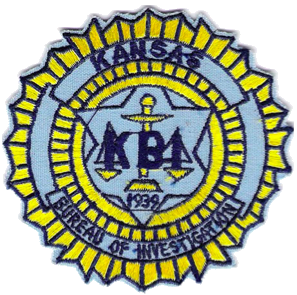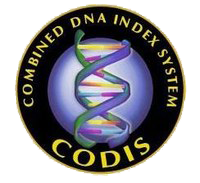Related Research Articles
LexisNexis Risk Solutions is a global data and analytics company that provides data and technology services, analytics, predictive insights and fraud prevention for a wide range of industries. It is headquartered in Alpharetta, Georgia, and has offices throughout the U.S. and in Australia, Brazil, China, France, Hong Kong SAR, India, Ireland, Israel, Philippines and the U.K. The company's customers include businesses within the insurance, financial services, healthcare and corporate sectors as well as the local, state and federal government, law enforcement and public safety.

An Amber Alert or a child abduction emergency alert is a message distributed by a child abduction alert system to ask the public for help in finding abducted children. The system originated in the United States.
A missing person is a person who has disappeared and whose status as alive or dead cannot be confirmed as their location and condition are unknown. A person may go missing through a voluntary disappearance, or else due to an accident, crime, death in a location where they cannot be found, or many other reasons. In most parts of the world, a missing person will usually be found quickly. While criminal abductions are some of the most widely reported missing person cases, these account for only 2–5% of missing children in Europe.
CrimTrac was a former Agency in the Attorney-General's Department that was merged with the Australian Crime Commission on 1 July 2016 to form the Australian Criminal Intelligence Commission. Crimtrac had been responsible for developing and maintaining national information-sharing services between state, territory and federal law enforcement agencies.

The National Crime Information Center (NCIC) is the United States' central database for tracking crime-related information. The NCIC has been an information sharing tool since 1967. It is maintained by the Criminal Justice Information Services Division (CJIS) of the Federal Bureau of Investigation (FBI) and is interlinked with federal, tribal, state, and local agencies and offices.

The National Center for Missing & Exploited Children (NCMEC) is a private, nonprofit organization established in 1984 by the United States Congress. In September 2013, the United States House of Representatives, United States Senate, and the President of the United States reauthorized the allocation of $40 million in funding for the National Center for Missing & Exploited Children as part of Missing Children's Assistance Reauthorization Act of 2013. The current chair of the organization is Jon Grosso of Kohls. NCMEC handles cases of missing or exploited children from infancy to young adults through age 20.

The Firearm Owners' Protection Act (FOPA) of 1986 is a United States federal law that revised many provisions of the Gun Control Act of 1968.
The USA PATRIOT Act was passed by the United States Congress in 2001 as a response to the September 11, 2001 attacks. It has ten titles, each containing numerous sections. Title IV: Protecting the Border aims to prevent terrorism in the USA through immigration regulations. The provisions of the title generally increase the difficulty of entering the country for those known to have, or suspected of having, terrorist intent.

The Jacob Wetterling Crimes Against Children and Sexually Violent Offender Registration Act, colloquially known as the Wetterling Act, is a United States law that requires states to implement a registry of sex offenders and crimes against children. It is named for Jacob Wetterling, a Minnesota eleven-year-old who was abducted by a stranger in 1989, and was missing for almost 27 years until his death was confirmed when his remains were found on September 1, 2016.

The Adam Walsh Child Protection and Safety Act is a federal statute that was signed into law by U.S. President George W. Bush on July 27, 2006. The Walsh Act organizes sex offenders into three tiers according to the crime committed, and mandates that Tier 3 offenders update their whereabouts every three months with lifetime registration requirements. Tier 2 offenders must update their whereabouts every six months with 25 years of registration, and Tier 1 offenders must update their whereabouts every year with 15 years of registration. Failure to register and update information is a felony under the law. States are required to publicly disclose information of Tier 2 and Tier 3 offenders, at minimum. It also contains civil commitment provisions for sexually dangerous people.

The Kansas Bureau of Investigation (KBI) is the state bureau of investigation of the U.S. state of Kansas. The KBI is a division of the Kansas Attorney General and responsible for providing investigative and criminal laboratory services to criminal justice agencies, as well as investigating and preventing crime in the state of Kansas. Tony Mattivi is the current director of the KBI.
Child abduction or child theft is the unauthorized removal of a minor from the custody of the child's natural parents or legally appointed guardians.

The National Crime Agency (NCA) is a national law enforcement agency in the United Kingdom. It is the UK's lead agency against organised crime; human, weapon and drug trafficking; cybercrime; and economic crime that goes across regional and international borders; but it can be tasked to investigate any crime. The NCA has a strategic role as part of which it looks at serious crime in aggregate across the UK, especially analysing how organised criminals are operating and how they can be disrupted. To do this, it works closely with regional organised crime units (ROCUs), local police forces, and other government departments and agencies.

As a result of its high level of immigration and emigration and its status as common source and destination for a large amount of international travel the United States has more incoming and outgoing international child abductions per year than any other country. To address this issue the United States played an active role in the drafting of the 1980 Hague Convention on the Civil Aspects of International Child Abduction Although the United States was one of the first nations to sign the Convention in 1981 the Convention did not enter into force for the US until 1988 with the enactment by Congress of the International Child Abduction Remedies Act which translated the Convention into US law.

The Combined DNA Index System (CODIS) is the United States national DNA database created and maintained by the Federal Bureau of Investigation. CODIS consists of three levels of information; Local DNA Index Systems (LDIS) where DNA profiles originate, State DNA Index Systems (SDIS) which allows for laboratories within states to share information, and the National DNA Index System (NDIS) which allows states to compare DNA information with one another.

The Science and Technology Branch (STB) is service within the Federal Bureau of Investigation that comprises three separate divisions and three program offices. The goal when it was founded in July 2006 was to centralize the leadership and management of the three divisions. The mission of the STB is discover, develop, and deliver innovative science and technology so that intelligence and innovative investigation is enhanced.
Criminal records in the United States contain records of arrests, criminal charges and the disposition of those charges. Criminal records are compiled and updated on local, state, and federal levels by government agencies, most often law enforcement agencies. Their primary purpose is to present a comprehensive criminal history for a specific individual.

The Preventing Sex Trafficking and Strengthening Families Act is a US bill that would address federal adoption incentives and would amend the Social Security Act (SSA) to require the state plan for foster care and adoption assistance to demonstrate that the state agency has developed policies and procedures with respect to the children it is working, and which are (possibly) a victim of sex trafficking or a severe form of trafficking in persons. The bill furthermore requires states to implement the 2008 UIFSA version, which is required so the 2007 Hague Maintenance Convention can be ratified by the US.

The Justice for Victims of Trafficking Act of 2015 is an Act of Congress introduced in the Senate on January 13, 2015, and signed into law by United States President Barack Obama on May 29, 2015. It is also known as the JVTA. Broadly speaking, it aimed to increase services for survivors of human trafficking as well as to strengthen and empower law enforcement and first responders.

Sex offender registries in the United States exist at both the federal and state levels. Registries contain information about persons convicted of sexual offenses for law enforcement and public notification purposes. All 50 states and the District of Columbia maintain sex offender registries that are open to the public via websites, most information on offenders is visible to the public. Public disclosure of offender information varies between the states depending on offenders' designated tier, which may also vary from state to state, or risk assessment result. According to NCMEC, as of 2016 there were 859,500 registered sex offenders in United States.